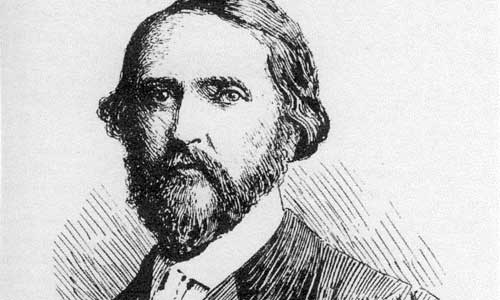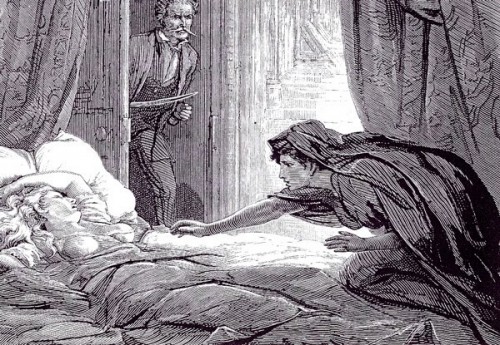MICHAEL S. COLLINS describes how too much horror might have been too much for J. Sheridan Le Fanu, the author of Carmilla and Uncle Silas
Write what you know. It’s a fairly standard piece of advice given to would be writers.
As with all pieces of advice, its meant to be taken metaphorically rather than literally. If every writer wrote only what they knew of, 99% of fiction would be boring melodrama.
The exceptions to the rule would be people like Ian Fleming who would have to shade down their life experiences for the readers to suspend their disbelief. Reality is unbelievable, after all.
Writing based on experience, however, is a useful starting block. If you can soak in the atmosphere of a place, transforming it into the most evocative of writing, all the better.
This loads to countless horror stories – Count Magnus immediately springs to mind among thousands – where the writer, who tried to soak in the atmosphere, led to more than they were bargaining, and the atmosphere does for them. A fine example of this is Robert Arthur’s The Believers, in which a Derek Acorah type down on his luck investigates a ‘haunted house’ full of spooks he has entirely invented, only to find out that, when conducting a live audience investigation, the atmosphere of the place, and the belief of millions of viewers, can conduct a deadly tag team.
These things are safely in the realm of fiction though.
Which brings us to the case of J. Sheridan Le Fanu. His Carmilla, a direct ancestor of Dracula, and a textbook on subtle LGBT issues in Victorian horror, has been discussed at length previously.

Andrew Garvey, in a previous piece ‘What the Papers Said – J. Sheridan Le Fanu‘, wrote of the contemporary newspaper reporting of the writer’s death.
When I was writing my university dissertation on M.R. James, research naturally led into Le Fanu. James was a connoisseur of the Irish horror writer, and his collecting of Le Fanu’s (at the time) obscure short horror stories, Justice Harbottle and all, probably saved a good majority of them from going missing forever. Collected from various books on the subject, though, the tale of his actual death seems as much a point of gothic horror as any of his tales.
(Those who wish to read more, I direct them towards Nelson Browne’s biography, and W.J McCormack’s Sheridan le Fanu and Victorian Ireland.)
Think of the optimal writing conditions for horror. You live in an old house full of creaks and groans. The typewriter sits in a study near the top of a long, curling staircase, on which one can almost hear feet, especially when there are none. You decide the best time for writing about Harbottle and his fellow doomed souls is between midnight and 3am, when candle light is required. Living in an open street, the wind howls all night through the windows and at the door.
Naturally, you live right next to a major cemetery, which you can see from the window, if you choose.
I have just described Sheridan le Fanu’s writing environment.
Le Fanu died of heart failure.
It would be unfair to connect the two, even if he were of a nervous disposition. However, there is more.
In the weeks leading up to Le Fanu’s death, he visited his Doctor. He spoke of a repeat nightmare, which was driving him nearly insane. In it, his house swayed back and forth in the wind, with him trapped in the middle. Each night, he was convinced, came closer to the time the house came down upon him. The Doctor, as they do, prescribed essentially placebos, and told Le Fanu not to worry.
Apocryphally, the same Doctor is meant to have been called to Le Fanu’s bedside when he was found dead, seen the look of fear on the dead author’s face, and exclaimed: “I fear that house toppled after all!”
The suitable surroundings are always good for horror. The trouble is, when they threaten to overrule the writer!






